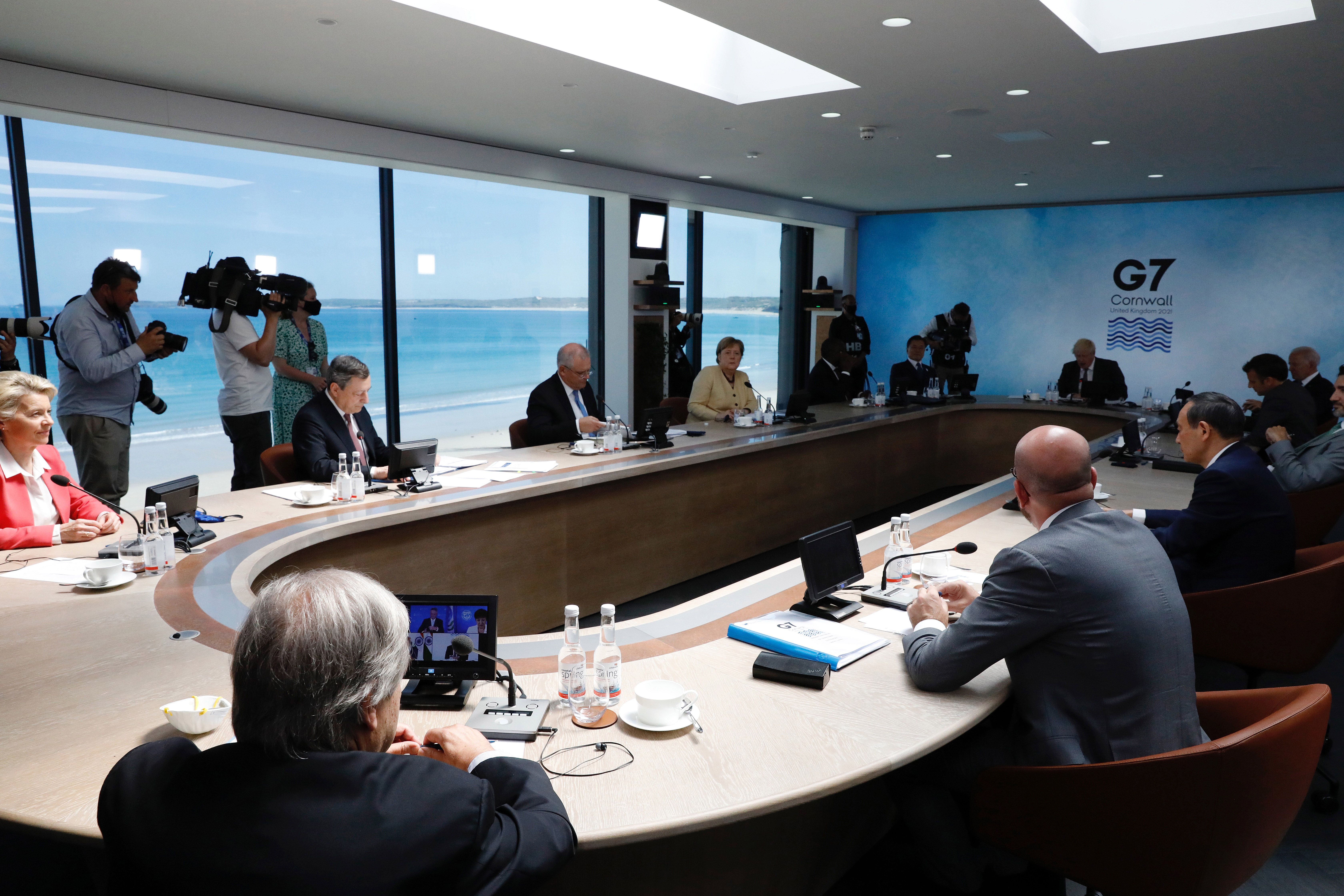Biden at the G7 Summit: Cooperation among Democratic Partners

What was the context of the summit?
The summit of G7 countries (the UK, U.S., Canada, France, Germany, Italy, and Japan) and the EU was the first in-person meeting of these leaders since 2019 and the outbreak of the COVID-19 pandemic. The UK, which is presiding over the group this year, also invited the leaders of Australia, India, South Korea, and South Africa. The summit was a continuation of a virtual meeting of the leaders in February 2021 and focused on combating the COVID-19 pandemic, a key difficulty impacting the realisation of vaccination plans, both in G7 countries (particularly in Canada and Japan) and in developing regions (India). In his first foreign trip since assuming the presidency, Biden’s participation made good on his pledge to return the U.S to multilateral diplomacy. His main goal was strengthening cooperation with democratic allies to forge partnerships key to his policies, especially on climate change and competing with China.
What arrangements were made at the meeting?
The leaders supported Biden’s important points concerning China: creating an investment programme (Build Back Better World) to compete with the Chinese Belt and Road Initiative as well as announcing further investigation into determining the source of the SARS-CoV-2 virus. They also criticised China for human rights abuses, including in Hong Kong and against the Uyghur minority (Russia was also criticised for interfering in the politics of democratic states, its aggression in Ukraine, and the imprisonment of opposition leaders). An understanding was signed to share information in order to prevent future pandemics. However, differences in the approaches of the G7 members to the question of intellectual property rights to vaccine production (the U.S. and France support granting waivers while Germany and the UK do not) could limit the success of cooperation with the WHO’s distribution plan. The group also plans to finance the development of clean energy technology in developing nations to contribute to de-carbonising the global economy, and introducing a minimum 15% corporate tax.
What does the G7 mean for U.S. foreign policy?
Closer U.S. cooperation within the G7 than during the Trump administration strengthens the group’s importance as a forum for coordinating activity toward global challenges, especially since Biden succeeded in gaining support for far-reaching initiatives against China. On the margins of the summit, he held talks with key allies, including France, Canada, and Germany (a visit by Chancellor Angela Merkel to Washington was announced for 15 July 2021). The creation of a competing infrastructure investment plan will be presented by the Biden administration as an alternative to Chinese programmes in order to minimise the growing dependence of Asian, African, and Latin American states on China. The rapprochement among the most developed Western countries on global issues and cooperating with democratic partners in the Indo-Pacific and Africa means that the G7 could in the future transform into a “Democratic 10” (D10) forum.
How will G7 cooperation affect transatlantic relations?
Closer collaboration within the G7 (and in an eventual evolution toward the D10) is essential for the success of Biden’s multilateral policies of countering authoritarian countries—mainly China and Russia. However, an obstacle to long-term G7 cooperation may turn out to be the differences between the members and the invited Asian and African partners. The U.S., Canada, and Japan are firmly focused on restraining China’s expansive politics, but Germany and Italy are less confrontational. Similar differences appear in relation to Russia. Closer cooperation emerging among the U.S., leading European partners, and Indo-Pacific countries may, however, continue in such areas as trade and economics, development, and regulating new technologies.


